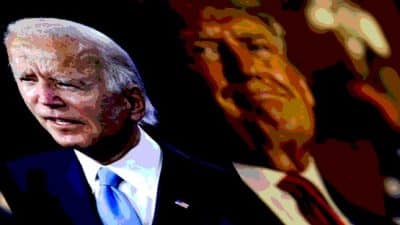
– Hans Christian Anderson
Ever find yourself whistling a tune but you don’t know the words or even the name of the song?
Not to worry – you’re not alone. It happens to me all the time. A melody appears, dissolves and later returns to my cobwebbed cranium and I ask, sometimes aloud, “Where did THAT come from?” It happens most often when lathering up early morning in the steamy shower.
A current example of “water music” bubbling out of the mental faucet – “Meet Mr. Callaghan,” a 1952 instrumental by the poet of the piano, the late Carmen Cavallaro, was the first 45 rpm recording our family purchased. I can still see the black label Decca 7″ disc spinning ’round on our mammoth Silvertone radio-phonograph piece of furniture. This impressionable youngster just about wore it out. I continue my quest to locate a mint condition copy of the original recording.
How would I cope without music flooding my soul? Music lifts my spirits, comforts, challenges, inspires and evokes memories of good times and bad times, of people and of life-changing events.
Music seems to always be there, a faithful companion on my daily rounds and ministering to my needs, often in unexpected ways, whether I’m already in a “life I love you, feelin’ groovy” mood or feeling uncertain that I can rise up and tackle the multiple demands that a given day will bring.
Those who know me are well aware that my primary passion is the music of the 1950s. It’s what I grew up listening to on legendary radio stations WIBG, Philadelphia, and WABC, New York and spending my weekly allowance on starting in 1956.
But before that, I cut my musical teeth on children’s records and on the music of the masters.
My favorite platters served up the misadventures of Little Orley, a country boy whose tall tales were told by Hugh (“Uncle Lumpy”) Brannum with musical accompaniment by Fred Waring and the Pennsylvanians (Brannum played bass in the Waring orchestra). The imaginative, homespun stories usually managed to gently inject a moral and promoted music appreciation through delightful instrumentation threaded through the narratives. “Uncle Lumpy” went on to become “Mr. Greenjeans” from 1955 to 1984 on the “Captain Kangaroo” show on CBS television.
I was tickled to secure the entire collection of “Little Orley” on CD, and I have “Little Orley and the Bull Fiddle” on the playlist for this month’s edition of the “Warped Records Show” on Tuesday, Oct. 29 on Newsradio 550-WSVA – if Jim Britt will allow it (he’s not sure whether this fits within the genre of looney tunes featured on the show).
An RCA Victor 45 rpm record player, one of the best Christmas gifts ever, came with a set of extended play discs featuring excerpts from the greatest classical works ever composed. Through that experience, Russian composer Pyotr Ilyich Tchaikovsky (1840-1893) became the ace cat on the hit parade for this adoring young fan. To this day, it’s hard to beat his “Swan Lake” ballet,” “1812 Overture” or “Nutcracker Suite” – suitable for year-round play, not just at Christmas.
For me, congregational singing and special music are often the most worshipful, significant parts of the service. I’m particularly drawn to and moved by the great hymns of the faith as well as some of the rousing gospel songs. I try to admonish the advice lifted from the Irish proverb, “. . . Sing like no one’s listening.”
Smoldering on my “to do” list for a long time is a determination to put together a disc of selections I want played as the prelude at my funeral service – including some secular numbers that have nurtured me over the years. I’ve postponed assembling the disc because I fear doing so might hasten the day it will be played.
I want my funeral to include the congregational hymns, “In Thee is Gladness” and “Be Still My Soul” from Sibelius’ “Finlanda” with brother Michael soloing on several verses. He led the latter at my dad’s funeral in 1998.
I continue to transfer selections from my 50-plus year vinyl collection to CD “cartunes” to play while on the road – a little traveling music lightens and brightens the miles.
Occasionally I’ll put on music quietly in the background at work or while on my home computer, not as a distraction (my work colleagues don’t share my musical tastes) but to serve as an inspirational and motivational base for a task I’m putting off. Internet sites that work for me include: www.hylitradio.com; www.classicoldieswmid.com; and www.oldies1160.com. They’re what radio used to sound like – and still should.
I may be a senior citizen who should be in my rockin’ chair watching pixel graphs dance across the screen on the Weather Channel but I’d rather be out on the floor kicking up my heels to a country-line dance number or “waltzing across Texas” with my sweetheart Schottische, Anna.
Or, when no one’s looking, I’ll pretend to be Eugene Ormandy conducting the Philadelphia Orchestra in the “Tuba Mirum” from Giuseppe Verdi’s “Requiem” or Charles Gounod’s “Unfold Ye Portals” from “The Redemption,” works that utilized all the resources of the full orchestra at that time.
I don’t want the music to slow down even when I feel my own tempo slowing. I share the Swedish group ABBA’s sentiment when they sing unequivocally, “Without a song or a dance what are we? So I say thank you for the music . . . for giving it to me.”
Jim Bishop hosts a weekly ’50s music program, “Friday Night Jukebox,” 8-9 p.m. Fridays on WEMC, 91.7 FM (online at www.wemcradio.org).










